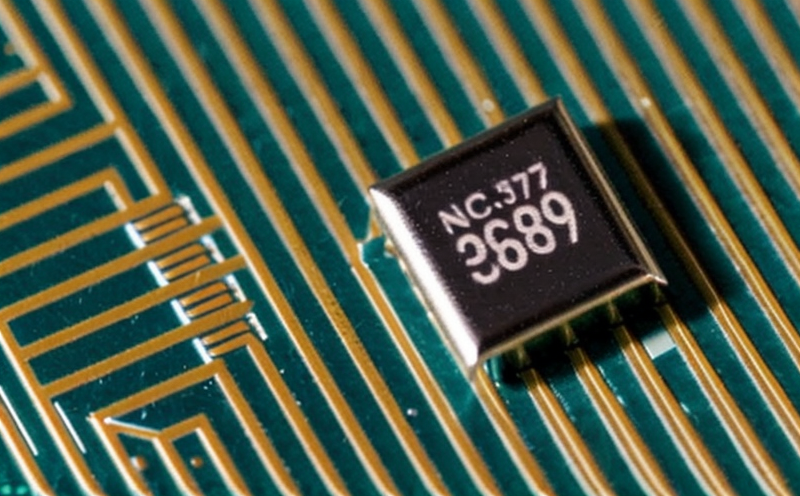JEDEC JESD22-A144 Microchip Reliability Under Harsh Environment Testing
The JEDEC standard JESD22-A144 is a rigorous test method designed to evaluate the reliability and lifetime of microchips under harsh environmental conditions. This testing protocol simulates real-world operating environments, ensuring that semiconductor devices can withstand extreme temperatures, humidity, and other stressors without failing.
The JESD22-A144 standard is particularly important for industries such as automotive, aerospace, medical electronics, and consumer electronics, where the reliability of microchips directly impacts product performance and safety. The test subjects include not only fully assembled devices but also individual components like diodes, transistors, and integrated circuits.
The testing protocol involves subjecting the microchips to a series of environmental stresses. These can include high temperatures, low temperatures, humidity cycling, and other conditions that might be encountered in various operational environments. The test aims to identify any weaknesses or vulnerabilities within the device structure before it reaches the end user.
One of the critical aspects of this testing is the ability to simulate real-life scenarios accurately. This involves precise control over environmental parameters such as temperature, humidity, and exposure duration. The instrumentation used in these tests includes sophisticated climate chambers capable of maintaining strict control over all variables.
The results of JESD22-A144 testing are crucial for ensuring the reliability of microchips throughout their lifecycle. By identifying potential failure points early on, manufacturers can make necessary adjustments to design and manufacturing processes. This not only enhances product performance but also reduces the risk of field failures, thereby improving overall quality.
In summary, JESD22-A144 testing provides a robust framework for assessing microchip reliability under harsh environmental conditions. It is an essential tool in the semiconductor industry, helping to ensure that products meet stringent quality and safety standards.
Industry Applications
| Industry Segment | Application |
|---|---|
| Aerospace & Defense | Evaluating microchips for use in space and military applications. |
| Automotive Electronics | Ensuring reliability of automotive control units under extreme conditions. |
| Consumer Electronics | Testing the durability of consumer devices like smartphones and tablets. |
| Medical Devices | Assuring the stability of medical electronics in hospital environments. |
The JESD22-A144 standard is widely adopted across these sectors, underpinning a culture of quality and safety. By adhering to this standard, manufacturers can ensure that their products meet the highest reliability benchmarks.
Why Choose This Test
- Precise Environmental Simulation: The test accurately simulates real-world operating environments.
- Enhanced Quality Assurance: Identifies potential failure points early, enhancing overall product quality.
- Rigorous International Standards: Complies with JEDEC JESD22-A144, ensuring global acceptance and compliance.
- Industry-Wide Recognition: Widely used in the semiconductor industry for reliability testing.
The comprehensive nature of this test makes it an indispensable tool for quality managers, compliance officers, R&D engineers, and procurement teams. It ensures that microchips can withstand harsh environmental conditions, thereby enhancing product performance and safety.
International Acceptance and Recognition
The JESD22-A144 standard enjoys broad international recognition and acceptance across various sectors. Its rigorous testing protocol ensures that semiconductor devices meet stringent quality and reliability standards, which is crucial for industries where product performance directly impacts safety.
This test method is widely used in the aerospace, automotive, medical, and consumer electronics industries. Compliance with JESD22-A144 helps manufacturers ensure their products meet global regulatory requirements and are trusted by consumers worldwide.
The acceptance of this standard extends beyond national borders, fostering a culture of quality and reliability across international markets. This ensures that semiconductor devices can be used confidently in diverse environments around the globe.





